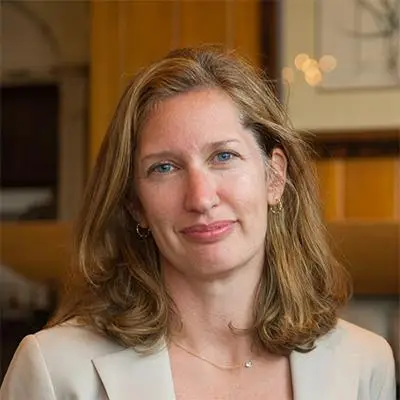At CRPE, our core business is gathering and analyzing evidence to inform education policy and propel systemic improvements. But what makes us unique is our ability to look around the corner to anticipate new challenges and develop bold ideas and pragmatic solutions.
Marking our 25th Anniversary, 2018 will be an important year for CRPE, and probably for the broader education reform movement. CRPE created the architecture for city-based school reform, the portfolio strategy. As it has been put into practice in dozens of localities, the portfolio strategy promotes diversity in schooling options and providers, school and educator flexibility, choice for families, and a process of continuous improvement in the set of schools available locally.
We remain committed to these principles, but the future will demand more than today’s portfolio strategies can deliver. America faces unprecedented change and uncertainty: politically, economically, environmentally, and socially. Our future depends on the ability of public education to adapt so that all students are prepared to solve problems that no one can fully anticipate.
Our Vision of the Future
Schools and families will confront uncertainties about the skills and knowledge needed to succeed in a turbulent economy. Instruction must become more personalized, so that families can choose among many more learning pathways. Every school will have to offer a range of options, some based on internal staff capacity, some on a strategically chosen set of online or community-based resources. Schools should be held accountable for their ability to link students to individually optimized sets of learning opportunities. Many schools will be brokers and curators of instruction, and not necessarily provide all of the instruction themselves.
Localities, facing great uncertainty about where and how graduates will find work, will want to cover all possibilities, not by requiring every school to teach every possible skill, but by encouraging schools and students to specialize, yet adapt to changes in the world and local economy. Localities will still need “portfolios,” but these will necessarily be more complex and flexible than those we have helped to construct to date:
- Individual schools must be able to change rapidly, and money, students, and talented educators must flow quickly to more productive and up-to-date instructional programs.
- Schools will need to attract and keep excellent teachers, but also be able to leverage outside services and resources.
- Family choices will become even more consequential, and families will need good information and supports to navigate more complex options.
- Community leaders will need to protect students by eliminating weak or unproductive schools, and ensure that the range of local options improves continuously.
- States will need to ensure equitable and flexible funding, provide labor market information to localities, schools, and families, and create incentives for rapid adaptation and continuous improvement.
The future will put every institution now connected to public education under great stress. Financing, regulation, staffing, and accountability will all need to be transformed. Community leaders need to maintain the support of valuable educators yet overcome forces that would block innovations.
Over the next year, CRPE will explore how key aspects of public education must change, and what policy changes and investments are needed now. As we did in the past, we hope to create a long-term vision and a specific roadmap for the kinds of learning systems towns, cities, and states will need in the 2020s and beyond.
We intend for 2018 to be a year of action toward forward-facing solutions. Our focus will be on redesigning the public education delivery model to prepare all American students to meet tomorrow’s challenges.
Highlights from 2017:
- We produced more than 15 forward-thinking research reports rooted in data and practice, and provided intellectual leadership through dozens of op-eds and conference presentations.
- We brought together district, charter, and community leaders from dozens of cities to work toward evidence-based solutions. In Cleveland, we fostered candid, cross-sector conversations about the challenges and rewards of district-charter collaboration, which led to important new insights. In Camden, the 13th meeting of CRPE’s Portfolio Network focused on concrete solutions to make school choice work for families and communities. In Houston, we convened district, charter, and school finance leaders to tackle the fiscal realities of declining district enrollment.
- As the portfolio strategy drew increased national attention, we provided a tough and honest assessment of its strengths, weaknesses, and necessary evolution, garnered from our nearly twenty years of research and on-the-ground work with dozens of cities that are working to implement the strategy.
- With the school choice debate too often disconnected from the reality on the ground, we produced a cross-city analysis of how public school choice is playing out for families in 18 cities.
- We presented our research at The Brookings Institution, National Summit on Education Reform, National Charter School Conference, PIE, EWA, NASBE, APPAM, AEFP, iNACOL, DFER, AEI, and at many other events.
- Our work was featured in The Atlantic, New York Times, Washington Post, Wall Street Journal, The Economist, U.S. News & World Report, Christian Science Monitor, NPR, Politico, Associated Press, USA Today, Boston Globe, Denver Post, San Francisco Chronicle, Seattle Times, and other national, local, and trade media.
- CRPE opinion pieces ran in U.S. News & World Report, Detroit News, L.A. Daily News, Huffington Post, The 74, Education Week, Brookings Chalkboard, and Education Next.



